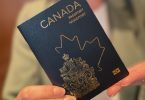Advertisements
In case you’re wondering if you can move to Canada without any money, this guide discusses five different immigration ways to Canada without financial resources.
READ ALSO: 10 Best Jobs in Canada that Don’t Require a Degree
What Are The Different Immigration Pathways To Canada Without Financial Resources?
Here are five ways you can move to Canada with no money In 2024/2025:
1. Express Entry
Express Entry is a popular way for skilled workers to immigrate to Canada and apply for permanent residency. It manages applications for three programs:
- The Federal Skilled Worker Program
- The Federal Skilled Trades Program
- The Canadian Experience Class.
READ ALSO: Construction Jobs With Visa Sponsorship In The USA
To begin, check your eligibility on the Immigration, Refugees, and Citizenship Canada (IRCC) website. You’ll need to meet requirements based on factors like age, education, and work experience.
Once eligible, gather necessary documents like your passport, language test results, and educational assessments. Then, create a profile on the IRCC website, filling in details about your identity, skills, and experience.
After submitting your profile, you’ll enter the Express Entry pool, where candidates are ranked using the Comprehensive Ranking System (CRS).
CRS scores are based on factors like age, language skills, education, and work experience. Higher scores increase your chances of receiving an Invitation to Apply (ITA) for permanent residency.
To improve your CRS score, improve your language proficiency, gain more work experience, or get a valid job offer in Canada.
Additionally, securing a provincial nomination can give you an extra 600 points, making it more likely you’ll receive an ITA.
2. Provincial Nominee Program (PNP)
The Provincial Nominee Program (PNP) is an excellent option for individuals looking to immigrate to Canada. It allows provinces and territories to nominate people with the skills and experience needed in their local job markets.
If you don’t qualify for federal immigration programs, the PNP may be the perfect fit for you. The PNP aims to help provinces fill labor shortages by bringing in skilled workers.
However, each province has its rules and streams, which allow you to find a program that matches your skills and experience. This flexibility makes it easier to secure a pathway to Canadian permanent residency.
Advertisements
To qualify for a PNP, you need at least one year of skilled work experience, proof of language proficiency (such as IELTS or CELPIP), a relevant educational background, and an intent to settle in the province you’re applying to.
Each province offers different streams. Common types include Skilled Worker Streams for in-demand skills, International Graduate Streams for graduates from Canadian colleges, and Business Immigration Streams for those looking to invest or start a business.
To begin the application process, start by researching which provinces have streams that fit your profile. Submit an Expression of Interest (EOI) to show your interest.
If nominated, update your Express Entry profile to boost your Comprehensive Ranking System (CRS) score, and then apply for permanent residency. For more details, visit Canada’s official immigration website.
3. Family Sponsorship
Family Sponsorship is another pathway for individuals looking to immigrate to Canada without money. This program allows Canadian citizens and permanent residents to sponsor their family members for permanent residency.
If you have a relative living in Canada who is willing to support you, this could be your way to starting a new life. Under the Family Sponsorship program, you can sponsor different family members, including spouses and common-law partners, dependent children under 22 who are unmarried, parents, and grandparents.
In some cases, you may also be able to sponsor other relatives if no immediate family members are available. However, to be eligible as a sponsor, you must be at least 18 years old, a Canadian citizen or permanent resident living in Canada, and not receiving social assistance for reasons other than disability. You must also prove that you can provide basic needs for yourself and your sponsored family member(s).
The application process involves checking your eligibility, gathering required documents that prove your relationship, and submitting your application through Immigration, Refugees and Citizenship Canada (IRCC).
If you live in Quebec, you must apply at the provincial level as well. As a sponsor, you must show that you meet the Minimum Necessary Income (MNI) requirements based on your family size.
Financial responsibilities vary, lasting from three years for spouses to up to twenty years for parents or grandparents.
READ ALSO: Unskilled Jobs In Canada With Visa Sponsorship Potential
4. Refugee And Asylum Programs
Refugee and Asylum Program is a great option for individuals escaping persecution or serious threats in their home countries.
Canada is known for its commitment to protecting those in need. If you find yourself in a dangerous situation, understanding these programs can help you seek safety and a new life in Canada.
Canada offers two main types of refugee programs. The Government-Assisted Refugees (GAR) program is for individuals referred by organizations like the United Nations High Commissioner for Refugees (UNHCR).
If you qualify, the Canadian government provides financial support and assistance during your settlement process, covering housing and basic living expenses.
Advertisements
The Privately Sponsored Refugees (PSR) program allows private groups or organizations in Canada to sponsor refugees. These sponsors offer financial help and support to help you adjust to Canadian life.
And, to be eligible for refugee status, you must have a well-founded fear of persecution due to race, religion, nationality, political opinion, or membership in a particular social group.
Additionally, you must apply from outside Canada if seeking resettlement. However, to apply, you must have the necessary documents, complete application forms, and submit your application through the correct channels.
After submission, you may attend an interview to explain your situation, followed by a decision regarding your refugee status.
Upon arriving in Canada as a refugee, you can access different support services, including housing assistance, financial aid, and community resources.
READ ALSO: 12 Canada/UK Jobs and Free Visa Opportunities for Africans – APPLY NOW
5. Study Permit
A Study Permit is an essential document for international students wanting to study in Canada. If you plan to attend a designated learning institution (DLI), you need this permit.
It not only allows you to study but also provides valuable experiences that can lead to permanent residency in the future.
To be eligible for a Study Permit, you must fulfill several requirements. First, you need an acceptance letter from a DLI, showing you have been accepted into a study program.
You must also demonstrate financial support, proving you can cover tuition fees, living expenses, and return travel costs.
It’s important to show your intent to leave Canada after your studies, confirming you do not plan to stay illegally. Also, you should have no criminal record, and in some cases, a police clearance certificate may be required.
Depending on your home country, a medical exam may also be necessary. When applying, gather all required documents, including your acceptance letter and proof of funds.
Complete the “Application for a Study Permit Made Outside of Canada (IMM 1294)” form and pay the CAD 150 application fee.
You can apply online or by paper, following the specific instructions. It can take up to three months to process your application, so apply early.
As an international student, you may work on-campus without a separate work permit, and with certain conditions met, you may also be eligible for off-campus work.
Advertisements
Advertisements






